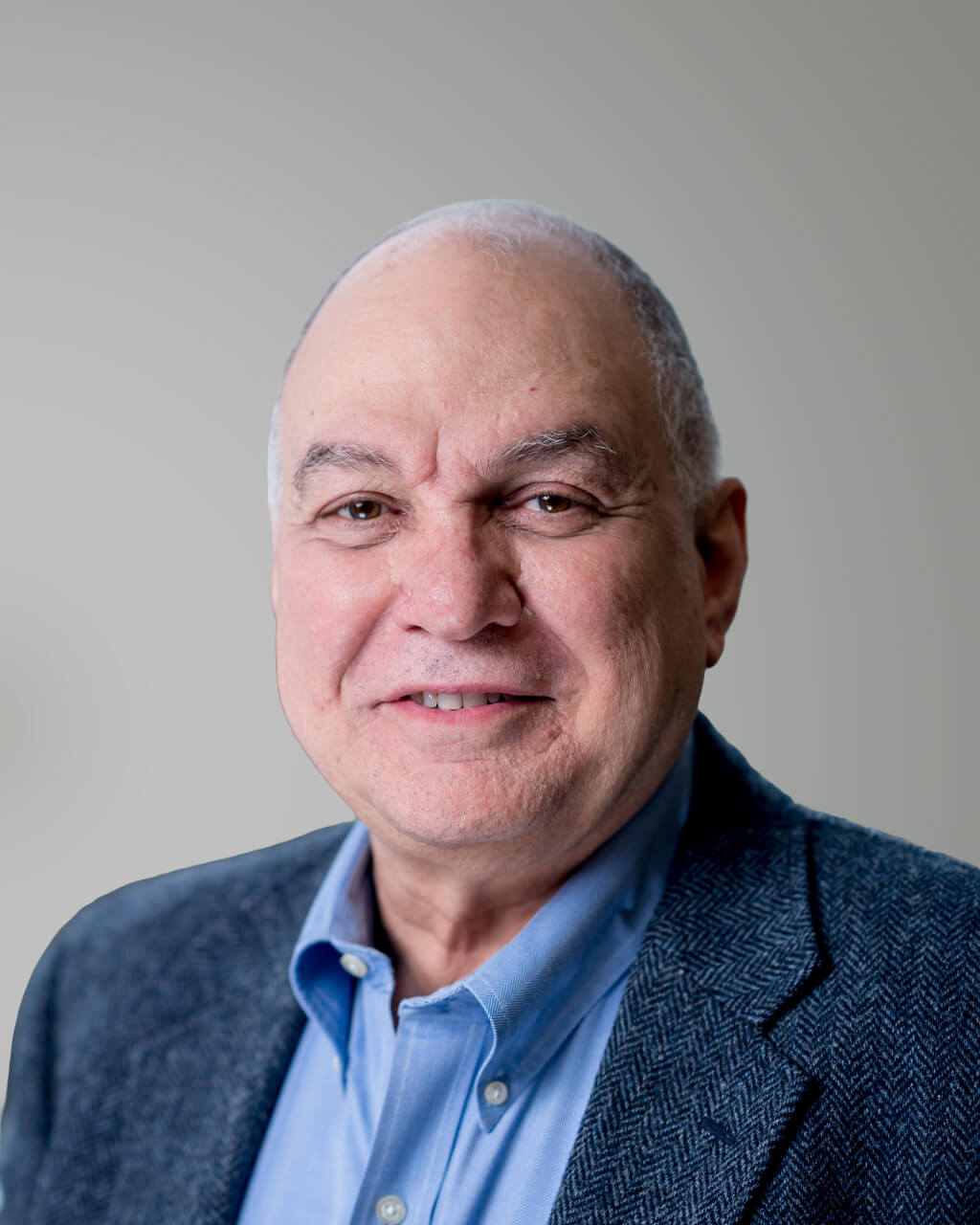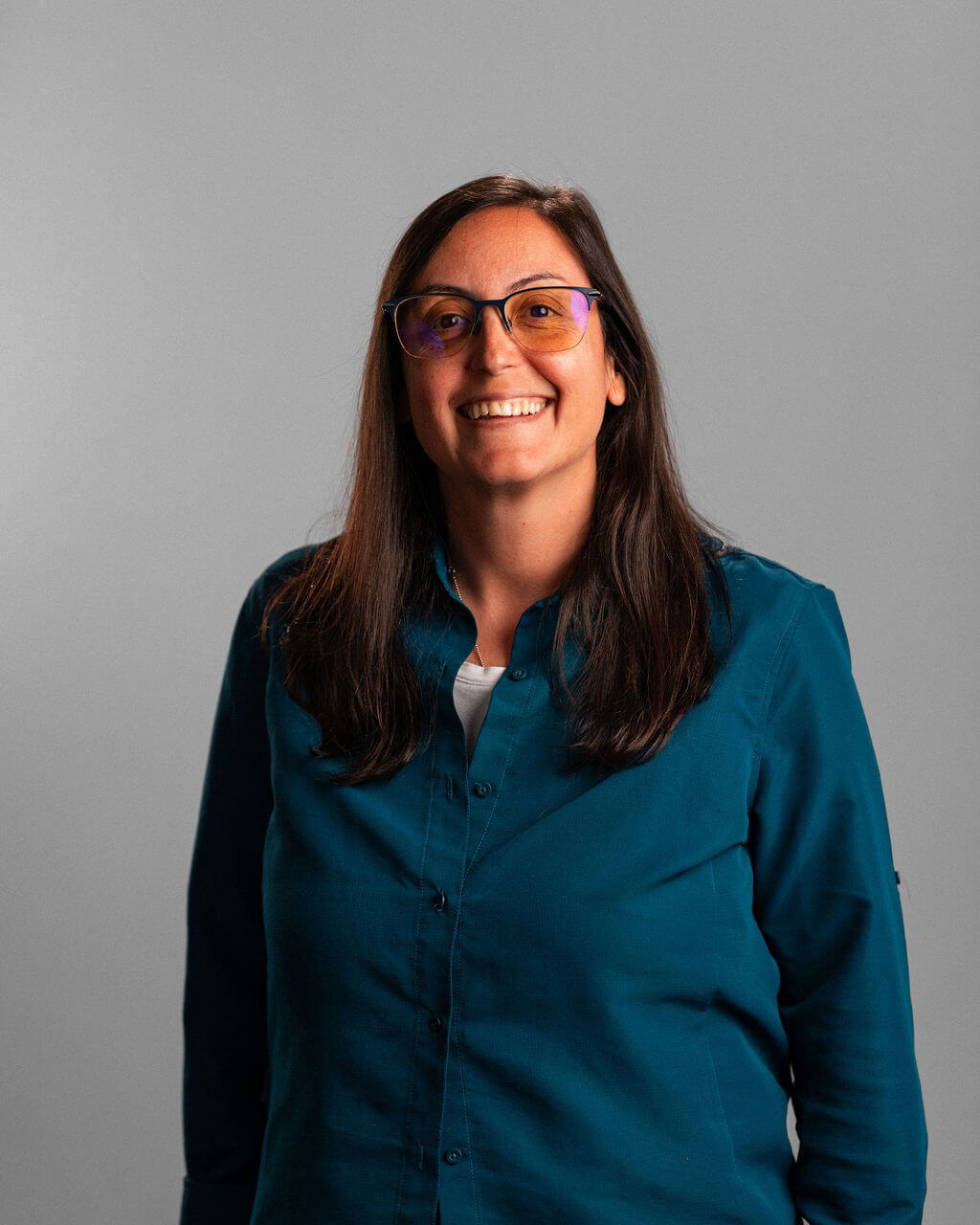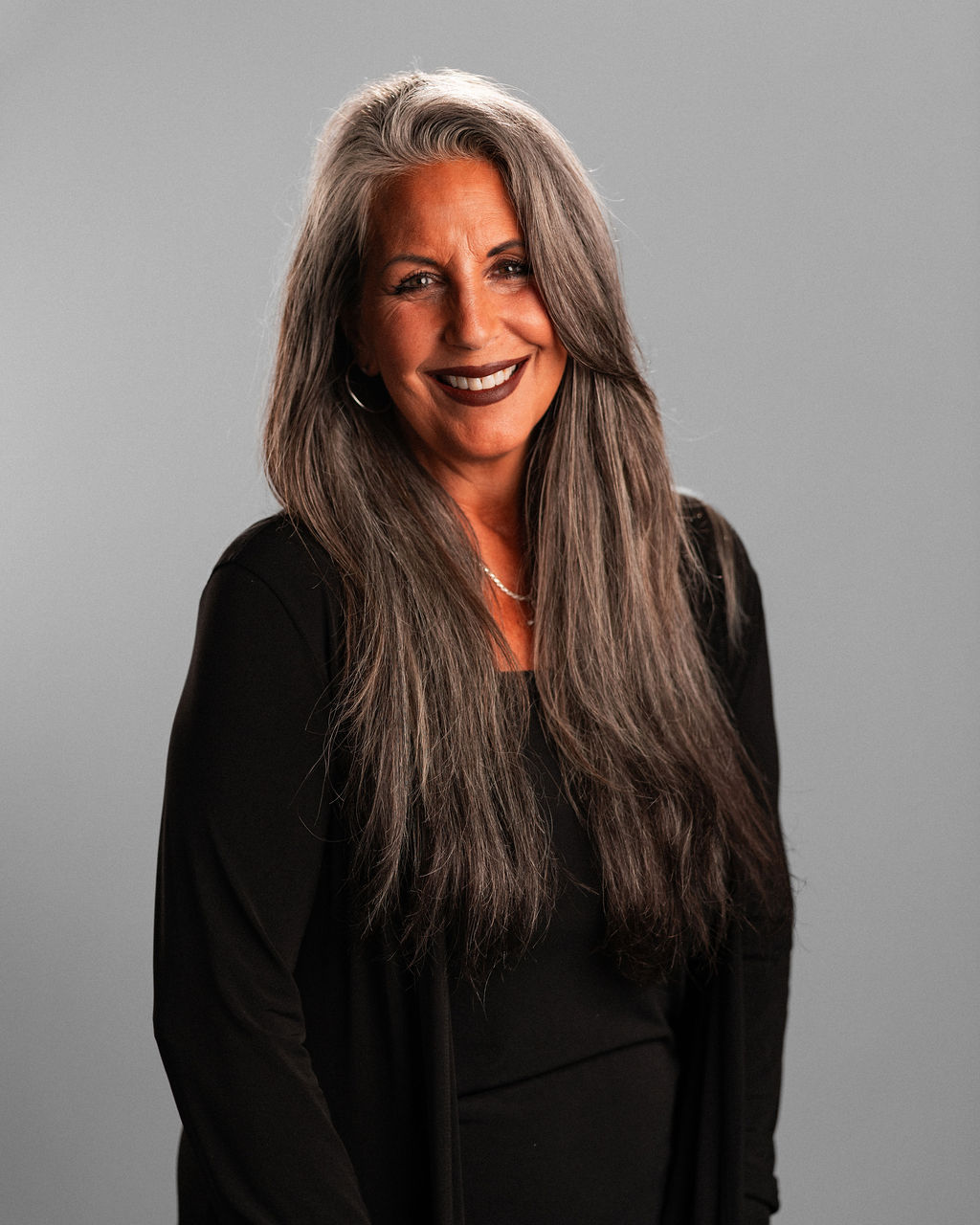
Doctor of Philosophy (Ph.D.) in Counselor Education + Supervision
Chicago, Online
The Adler University Doctor of Philosophy in Counselor Education and Supervision shapes visionaries in counseling to lead as scholars, supervisors, educators, and clinicians.
- 60 credits
- CACREP accredited
- 600-hour doctoral-level internship
- Part-time opportunities
- Multiple emphasis options
- Scheduled friendly class delivery format
Admission Deadlines
| Term | Priority | Final |
|---|---|---|
| Fall 2026 | 12/1/2025 | 2/15/2026 |
| Summer 2026 | 2/15/2026 | 3/15/2026 |
Program overview
Students push beyond theory to explore the nature of change itself, building advanced expertise in clinical practice, supervision, teaching, and research. Guided by faculty mentors, they gain visibility through publications, presentations, and collaborative projects that shape the field.
Specialized coursework in diverse methodologies helps students sharpen research agendas early, positioning the dissertation as a platform for impact. Along the way, they cultivate the critical thinking and leadership skills to challenge convention and create new pathways professionally.
Graduates leave ready to transform practice, influence scholarship, and train the next generation of counselors.
Why choose the Ph.D. in counselor education and supervision at Adler?
- Credentialed distinction: Accredited by the Council for Accreditation of Counseling and Related Programs (CACREP), which recognizes programs that meet or exceed the highest standards for counselor preparation.
- Proven success: 100% job placement for graduates within one year.
- Community-centered approach: Learning rooted in Adler’s principles of social interest and collective well-being.
- Research advantage: Early development of research agendas through diverse methodologies.
- Research advantage: Early development of research agendas to facilitate dissertation completion.
- Professional Portfolio: mentoring and support for students to develop their career portfolio and expertise through presentations and writing.
- Program Excellence: led by devoted faculty with an array of experience in academic leadership, teaching, publications, and research.
LEARNING modalities
The counselor education and supervision doctorate program at Adler can be completed in one of two modalities: on-campus in Chicago or online. Both offer a comprehensive and engaging educational experience, with the flexibility to meet the needs of working professions.
Within each modality, courses are scheduled in formats that support the needs of adult learners. These may include evening classes, blended courses with online components, weekend meetings, and fully online options for electives and emphases.
On campus
Core coursework is completed in Chicago through scheduled on-campus classes, while elective coursework is delivered online in synchronous sessions.
Online
Students may complete the program remotely through online platforms, with two required residency weeks — one in the first year and one in the second year. Core courses are delivered in real-time, with virtual students joining the in-person class sessions synchronously. Elective or emphasis courses are also offered online in synchronous formats.
LICENSURE
Program licensure
The program aims to provide advanced training in teaching, supervision, research, and clinical practice for licensed counselors or mental health professionals eligible for master’s-level licensure in Illinois or other states. The goal of the program is not to prepare students for counselor licensure. Students without a counseling license; however, may use some coursework and training hours to supplement the master’s level licensure requirements for the states where they reside and want to attain respective licensure. They must consult with their respective states for specific licensure requirements and seek advice the DCES faculty to see how they can best utilize the program or use other means to augment their licensure deficiency. However, the program cannot guarantee students’ attainments for their desire licenses as the decision has to come from the respective states.
Expand Your Credentials
Adler University’s Doctor of Philosophy in Counselor Education and Supervision (DCES) offers opportunities for students to shape their learning experience around their professional goals. In addition to core doctoral training, students may choose one of three emphasis areas that address contemporary needs in counseling and supervision.
Students engage with established methods such as Dialectical Behavior Therapy and EMDR, as well as emerging approaches including metacognitive therapy, memory reconsolidation, schema therapy, the CHANGES Model, and the cognitive therapy of oppression. Learning extends beyond theory to application, with role plays, case discussions, and video analysis. Cognitive-existential and advanced experiential therapies are also examined, alongside a strong foundation in mindfulness practice as an empirically supported intervention. The emphasis addresses a wide range of conditions from anxiety and depression to personality disorders and addictions.
Signature classes include:
This area of study examines the complex issues associated with trauma, stress, crisis, and disaster experiences. Coursework addresses trauma theories as well as the assessment and diagnosis of PTSD and related conditions in clinical mental health settings, with particular attention to differentiating their varied characteristics. Focus is placed on developing knowledge and skills in multiple types of interventions, trauma assessment methods, and diagnostic practices across the lifespan. Attention is also given to mobilizing community resources in response to trauma and addressing its impact on individuals, families, and groups. Treatment planning integrates individual, family, and group interventions with holistic strategies and recovery supports such as self-help groups. The curriculum further explores the effects of trauma on neurodevelopment and the immune system, providing a comprehensive perspective on both the psychological and physiological dimensions of trauma.
Signature Classes Include:
This emphasis equips students to integrate systemic and culturally responsive approaches to counseling that foster resilience, strengthen client capacities, and promote healthier communities. With attention to the intersections of identity, environment, and lived experience, students build advanced skills to support well-being and address barriers that impact individuals, families, and groups.
Signature classes include:
Professional Pathways in counseling leadership
With expertise in teaching, supervision, research, and clinical practice, graduates take on positions that influence how counseling is taught, practiced, and expanded across communities.

Professors of counselor education programs + other counseling disciplines
Teach graduate counseling courses, design curricula aligned to CACREP expectations, supervise practicum and internship, mentor research, and chair dissertations. Evaluate programs, publish and present scholarship, and contribute to accreditation and departmental service.

Clinical supervisors
Guide counselors and trainees in case conceptualization, treatment planning, and ethical decision-making. Clinical Supervisors review documentation, monitor risk and outcomes, deliver formative and summative feedback, and model culturally responsive practice. They structure individual and group supervision, consult on crises, and uphold gatekeeping and legal standards.

Clinical + Specialist Consultants
Advise agencies and providers on program design, clinical protocols, workforce training, and quality improvement. Clinical and specialist consultants deliver case consultation and workshops, aligning practice with ethics and policy.

Skilled researchers + scholars in counseling
Design rigorous studies, conduct qualitative and quantitative analyses, and evaluate programs that advance counseling practice; publish in peer-reviewed outlets, present at conferences, mentor research teams, and uphold ethical standards for human subjects and data.
Admissions requirements
Eligibility
Applicants to the Doctor of Philosophy in Counselor Education and Supervision must meet University Admissions requirements in addition to criteria specific to the Ph.D. program.
- A master’s degree in counseling or clinical program in a related field from a regionally accredited U.S. institution or a comparable degree from an international institution.
- Applicants who did not graduate from CACREP-accredited or equivalent programs may be required to complete the equivalency requirements in addition to the doctoral curriculum. (See prerequisites).
- Successful completion of master’s-level counseling or clinically related coursework, and clinical training, through counseling practicum (100 hours) and/or internship (600 hours) as part of a master’s program. These are required for admission and cannot be fulfilled after the student has been admitted.
- An academic record that demonstrates ability to fulfill the academic demands of our program. Successful applicants typically have a grade point average of 3.25 or higher on a 4.0 scale for graduate-level coursework.
Prerequisites
A master’s degree in counseling or a related field from a regionally accredited U.S. institution or a comparable degree from an international institution.
Successful completion of master’s level counseling coursework, and clinical training, practicum and/or internship as part of a master’s program.
Application Requirements
Applicants are required to submit the following items to be considered for admission:
- Application fee
- Completed application submitted via the online portal.
- Resume or Curriculum Vitae
- Statement of Intent
- Official transcripts from all undergraduate and graduate schools attended (U.S and Canada).
- Three letters of recommendation. These should be from someone who can specifically speak to your academic and professional abilities.
- Faculty interview.
Statement of Intent
Applicants are required to provide a statement of intent answering the following questions. They should be 2-3 pages, double-spaced.
- Why are you interested in your chosen field and program?
- Why is Adler University’s program a good fit for you?
- Adler University mission is based on social justice. Share your perspective of social justice.
- What are your career goals and interests?
How to Apply + Submit Transcripts
- Complete your application in Adler University’s online portal. The application, fee, Statement of Intent, resume/CV, and references’ details are submitted in the portal.
- Official transcripts must be sent directly from each issuing institution or approved service to the Office of Admissions prior to the application deadline. Do not upload official copies to the portal.
Unofficial transcripts may be accepted for any schools in which a degree was not received.
Official electronic transcripts should be sent to admissions@adler.edu.
Physical transcripts should be sent to:
Adler University – Office of Admissions
17 N. Dearborn Street
Chicago, IL 60602
Curriculum | internships | practicums
The Doctor of Philosophy in Counselor Education and Supervision is a 60-credit-hour program. As part of the program, students will complete a clinical practicum, an internship, a comprehensive examination, and a dissertation.
Completion of the program includes the courses below, along with additional requirements outlined in the Adler University catalog.
PROGRAM PREREQUISITES
Applicants are expected to have adequate coursework in the following areas. Applicants who did not graduate from a CACREP-accredited or equivalent program will be assessed to determine whether they have adequate coursework in the following master’s-level counseling course areas and whether they need to complete additional master’s-level courses prior to the beginning of the doctoral program.
Professional, Legal, and Ethical Issues
This course provides a foundation for the ethical practice of professional counseling. It introduces students to the history of the counseling profession as well as professional roles (practitioner, supervisor, educator, etc.) and professional organizations.
Counseling Theories
This course provides a survey of models and theories consistent with current research (evidenced-based) and practice in the counseling profession. Approaches include psychoanalytic, individual psychology, person-centered, existential, cognitive-behavioral, Gestalt, family systems, and postmodern theories.
Counseling Skills
This course teaches basic relationship and counseling skills using role-plays and other experiential activities. The course covers basic counseling skills (e.g., attending, active listening, building rapport), intake interviewing, and self-reflection/self-assessment procedures. It also addresses additional skills such as confrontation, immediacy, hereand-now processing, self-disclosure, and stages of change.
Human Growth and Development
This course presents an overview of various models and theories in the discussion of the characteristics, developmental needs, and tasks at different stages of a person’s life cycle. The impact of social, cultural, biological, and psychological factors on prenatal life, childhood, adolescence, adulthood, and aging will be discussed.
Multicultural and Social Justice Counseling
This course is designed to provide a basic foundation of knowledge, awareness, and skills needed for providing more effective counseling services in a multicultural society.
Group Counseling
This course introduces students to theory and principles of group dynamics as well as developmental stages of groups.
Appraisal and Assessment
This course will provide foundational knowledge of individual and group approaches to assessment and evaluation commonly used in counseling practice. Students will be introduced to a variety of formal and informal assessment tools and instruments.
Research & Program Evaluation
This course is a master’s-level introduction to research methods and program evaluation as it pertains to the field of professional counseling. Major research designs including both quantitative and qualitative methods will be explored.
Career Development Theories and Interventions
This course will examine career development and decision-making models and ethical counseling applications to diverse/multicultural client populations.
Diagnosis of Maladaptive Behavior
This course provides an overview of the major disorders in the current edition of the DSM. A range of mental disorders from adjustment disorders to serious psychopathologies will be discussed.
Couples and Family Counseling
This course presents an overview of major models of couples and family therapy. The impact of multigenerational and environment factors on family dynamics and couples’ relations will be examined through various systemic perspectives.
CORE COUNSELOR EDUCATION + SUPERVISION COURSES
Counselor Education, Scholarly Endeavors & Consultation
This course aims at fostering the development of the counselor educator identity. It will orient students to the role of counselor educator, and their ethical and legal responsibility as a scholar, trainer, supervisor, and gate keeper of the profession. Through this course, students will start implementing their plan of a specialty area by conducting a more in-depth literature review regarding their areas of interest and submitting a conference proposal for a local, regional or national conference. The course will also emphasize student actual involvement in organizations. Ethics regarding writing, publishing, and conducting scholarly activities will be discussed. It will emphasize students’ understanding of academic writing, formulating a manuscript with the goal of journal publication. It will address the manuscript submission process and the submission of a manuscript for publication as well as the guidelines set forth by major counseling peer reviewed journals. Further refinement of the literature review of the specialty area will serve as a base for part of the doctoral student’s dissertation as well as a manuscript to be submitted to a peer reviewed journal by the end of the semester. The course also discusses consultation in different venues, clinical and administrative.
Advanced Counseling Theories, Integration and Change
This course is an advanced, in-depth, exploration of the theories of counseling, including philosophical presuppositions, assumptions, and implications of counseling and psychotherapy and its theoretical dilemma. Also examined are research findings on consciousness and human change processes such as the stages, processes, and precursors of change.
Advanced Multicultural Counseling, Advocacy and Leadership
This course is designed to strengthen doctoral students’ ethical and multicultural competencies as counselors/practitioners, counselor educators, supervisors, and researchers. In addition, this course also focuses on students’ understanding of leadership and advocacy models and development of advocacy and leadership skills.
Pedagogy in Counselor Education
This course is designed to orient doctoral-level counseling students to the major teaching and learning theories, perspectives, and developmental trends in the field of counselor education. The course includes in-depth discussion of teaching methods, pedagogy, learning styles, and characteristics of effective teachers.
Program Research, Evaluation and Development
This course will explore in-depth models of program evaluation and development. Students will learn about the application of research techniques and models to conduct needs assessments, input, process, and outcome program evaluation and use the evaluation data to inform program development or enhancement.
Trauma, Crisis, and Disaster Intervention
This course is designed to advance clinicians’ knowledge and skills in responding to both small- and large-scale crises and trauma, as an individual practitioner and as part of an interdisciplinary team in an agency or a community.
Advanced Group Counseling and Supervision
The course is designed to advance both students’ theoretical understanding and skill level in actual practice in facilitating group dynamics. Several approaches to group work are covered, including wellness and personal growth, mental health, and therapeutic groups for diverse clienteles, settings, and clinical issues.
Qualitative Research Methods Counseling
This course is designed to provide in-depth study in various qualitative research methods in counseling, program evaluation, education, and behavioral sciences.
Quant Research Methods in Counseling
This course focuses on the use of quantitative data and application of both descriptive and inferential statistical research methods in the field of counseling, program evaluation, education, and behavioral sciences.
Applied Statistical and Qualitative Analyses in Research
This course provides students training in advanced statistical methods and techniques in analyzing, interpreting and reporting quantitative data in research.
Curriculum and Academic Program Development
This course covers principles of curriculum design for universal learning for diverse individuals and various delivery modalities. There will be discussions on academic program development with reference to accreditation requirements and institutional and program missions. The course will also focus on how different elements of the program support the overall program effectiveness, including the design of each course and its learning objectives, assessment strategies for learning outcomes, evaluation of student dispositions for professional demeanor, admissions and selection of students, and support and retention of students. Students will also be introduced to the accreditation process and the writing of self-studies for CACREP and other accrediting bodies for at both state and regional levels.
FIELD TRAINING
DCES Internships and Seminars
The DCES internships provide students a forum to enrich their professional portfolios and strengthen their career possibilities and potential as expert clinicians, supervisors, researchers, scholars, and counselor educators. Students will work with their faculty advisor to tailor their individual internship experiences in order to enhance their professional goals. As a result, students will be responsible for developing their internship training sites and opportunities with assistance and support from their faculty advisor and the clinical training director.
The DCES Internships and Seminars provide students with venues to be trained in advanced clinical training, supervision, teaching, research, and other advanced professional experiences. Students are required to complete 600 hours of internship.
Students can complete these elements of the internship in sequence or simultaneously. When formulating internship plans, students should consider using the experience to enhance their career profile and, where possible, specialty areas. In addition to the field hours and site supervision, students are required to register for seminars for group supervision and support.
Mandatory Internship Experiences
All students are required to complete a minimum of 600 hours of Internships in the following areas collectively:
- Research.
- Advanced Clinical Practice.
- Teaching.
- Supervision.
Social Justice Internship I
For Students who did not complete the 200 hours of Social Justice Practicum in their master’s program.
The Social Justice Internship (SJI) is designed to advance students’ degree of understanding of leadership in effecting change at the community and professional level.
Social Justice Internship II
For Students who did not complete the 200 hours of Social Justice Practicum in their master’s program.
The Social Justice Internship (SJI) is designed to advance students’ degree of understanding of leadership in effecting change at the community and professional level.
DCES COMPREHENSIVE EXAM
Each student must take and pass a written comprehensive essay examination prior to candidacy for the doctoral degree. The exam assesses competence in the five CACREP doctoral core areas (counseling, leadership and advocacy, supervision, teaching, and research). Students can apply for the comprehensive examination during the last semester when they are finishing all the core courses and may take the examination in the following semester.
DISSERTATION
DCES Dissertation I
Students are expected to apply one or more of the major research models or theories to conduct a research project in a dissertation format.In this first phrase of the dissertation, students are expected to form their dissertation committees, and work on the research proposal, chapters 1, 2 & 3.
DCES Dissertation II
In this phase of the dissertation, students should complete the research proposal (chapters 1, 2, and 3), coordinate an oral defense of the research proposal, and submit the IRB application.
DCES Dissertation III
Upon the approval of the study by the IRB, students can begin to implement the methodology of the dissertation research, including data collection and analysis, to write about the results and conclude the research.
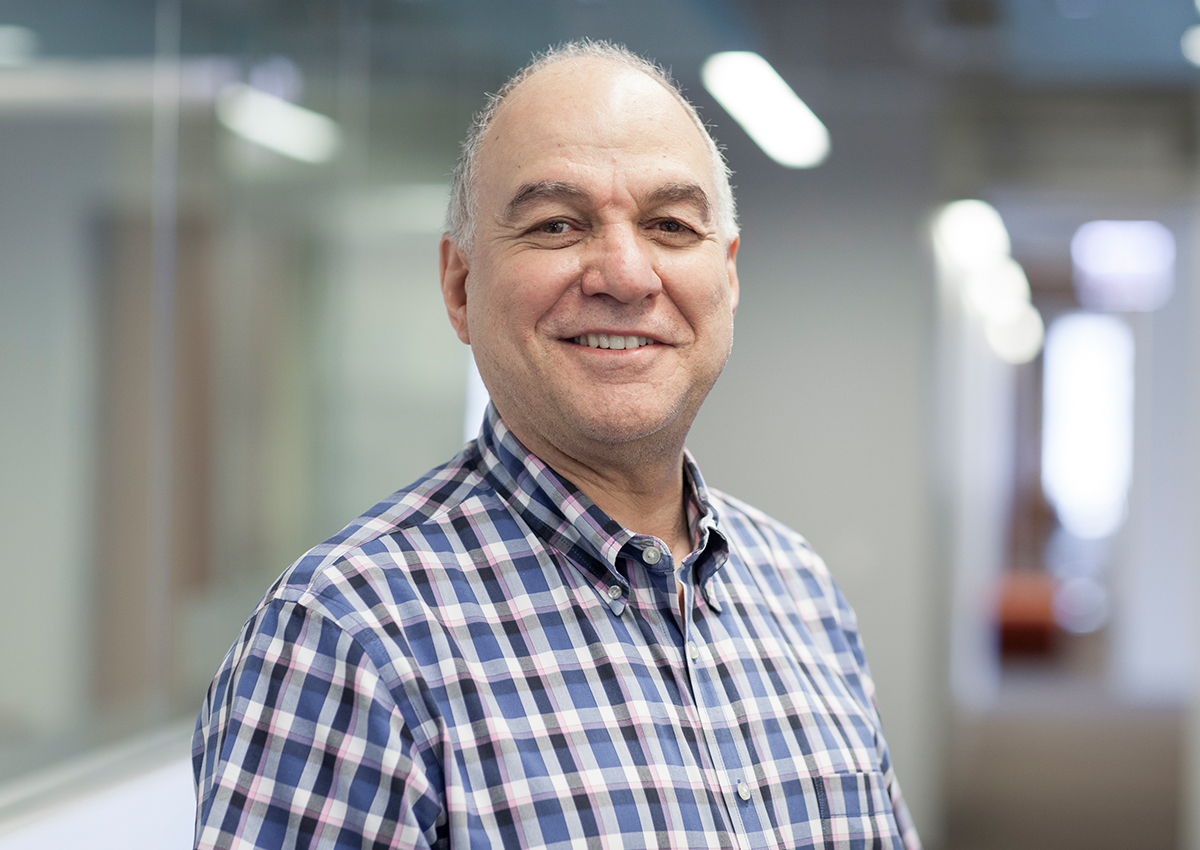
“Our Ph.D. program is dedicated to freedom and liberation, from clinical and theoretical to cultural and professional.”
– Fred J. Hanna, Ph.D., Professor and Co-Founder
Faculty
Meet the faculty leading Adler’s Ph.D. in Counselor Education + Supervision in Chicago.
Elvita Kondili, Ph.D.
Assistant Professor and Core Faculty
Doctor of Philosophy in Counselor Education and Supervision
Chia-Chiang (CC) Wang, Ph.D.
Associate Professor + Director of Training
Counselor Education and Supervision

Financing your degree
Use our tuition calculator to help you start to plan your budget. Financial aid from the government, scholarships, or part-time employment can help you more easily afford your degree.
Please make a selection using the filters above.
Art Therapy | Ph.D.
Year
1Credits
35Tuition
$35,035Fees
$3,222Total
$38,257Term
FallCredits
12Tuition
$12,012Fees
$1,074Total
$13,086Term
SpringCredits
12Tuition
$12,012Fees
$1,074Total
$13,086Term
SummerCredits
11Tuition
$11,011Fees
$1,074Total
$12,085Art Therapy | Ph.D.
Year
1Credits
35Tuition
$35,035Fees
$7,428Total
$42,463Term
FallCredits
12Tuition
$12,012Fees
$2,476Total
$14,488Term
SpringCredits
12Tuition
$12,012Fees
$2,476Total
$14,488Term
SummerCredits
11Tuition
$11,011Fees
$2,476Total
$13,487Art Therapy | Ph.D.
Year
2Credits
18Tuition
$18,018Fees
$3,222Total
$21,240Term
FallCredits
9Tuition
$9,009Fees
$1,074Total
$10,083Term
SpringCredits
7Tuition
$7,007Fees
$1,074Total
$8,081Term
SummerCredits
2Tuition
$2,002Fees
$1,074Total
$3,076Art Therapy | Ph.D.
Year
2Credits
18Tuition
$18,018Fees
$7,428Total
$25,446Term
FallCredits
9Tuition
$9,009Fees
$2,476Total
$11,485Term
SpringCredits
7Tuition
$7,007Fees
$2,476Total
$9,483Term
SummerCredits
2Tuition
$2,002Fees
$2,476Total
$4,478Art Therapy | Ph.D.
Year
3Credits
9Tuition
$9,009Fees
$3,222Total
$12,231Term
FallCredits
3Tuition
$3,003Fees
$1,074Total
$4,077Term
SpringCredits
3Tuition
$3,003Fees
$1,074Total
$4,077Term
SummerCredits
3Tuition
$3,003Fees
$1,074Total
$4,077Art Therapy | Ph.D.
Year
3Credits
9Tuition
$9,009Fees
$7,428Total
$16,437Term
FallCredits
3Tuition
$3,003Fees
$2,476Total
$5,479Term
SpringCredits
3Tuition
$3,003Fees
$2,476Total
$5,479Term
SummerCredits
3Tuition
$3,003Fees
$2,476Total
$5,479Clinical Mental Health Counseling | M.A.
Year
1Credits
18Tuition
$29,106Fees
$1,806Total
$30,912Term
FallCredits
6Tuition
$9,702Fees
$602Total
$10,304Term
SpringCredits
6Tuition
$9,702Fees
$602Total
$10,304Term
SummerCredits
6Tuition
$9,702Fees
$602Total
$10,304Clinical Mental Health Counseling | M.A.
Year
1Credits
18Tuition
$29,106Fees
$6,012Total
$35,118Term
FallCredits
6Tuition
$9,702Fees
$2,004Total
$11,706Term
SpringCredits
6Tuition
$9,702Fees
$2,004Total
$11,706Term
SummerCredits
6Tuition
$9,702Fees
$2,004Total
$11,706Clinical Mental Health Counseling | M.A.
Year
2Credits
20Tuition
$32,340Fees
$1,806Total
$34,146Term
FallCredits
7Tuition
$11,319Fees
$602Total
$11,921Term
SpringCredits
7Tuition
$11,319Fees
$602Total
$11,921Term
SummerCredits
6Tuition
$9,702Fees
$602Total
$10,304Clinical Mental Health Counseling | M.A.
Year
2Credits
20Tuition
$32,340Fees
$6,012Total
$38,352Term
FallCredits
7Tuition
$11,319Fees
$2,004Total
$13,323Term
SpringCredits
7Tuition
$11,319Fees
$2,004Total
$13,323Term
SummerCredits
6Tuition
$9,702Fees
$2,004Total
$11,706Clinical Mental Health Counseling | M.A.
Year
3Credits
18Tuition
$29,106Fees
$1,806Total
$30,912Term
FallCredits
6Tuition
$9,702Fees
$602Total
$10,304Term
SpringCredits
6Tuition
$9,702Fees
$602Total
$10,304Term
SummerCredits
6Tuition
$9,702Fees
$602Total
$10,304Clinical Mental Health Counseling | M.A.
Year
3Credits
18Tuition
$29,106Fees
$6,012Total
$35,118Term
FallCredits
6Tuition
$9,702Fees
$2,004Total
$11,706Term
SpringCredits
6Tuition
$9,702Fees
$2,004Total
$11,706Term
SummerCredits
6Tuition
$9,702Fees
$2,004Total
$11,706Clinical Mental Health Counseling | M.A.
Year
4Credits
6Tuition
$9,702Fees
$1,806Total
$11,508Term
FallCredits
2Tuition
$3,234Fees
$602Total
$3,836Term
SpringCredits
2Tuition
$3,234Fees
$602Total
$3,836Term
SummerCredits
2Tuition
$3,234Fees
$602Total
$3,836Clinical Mental Health Counseling | M.A.
Year
4Credits
6Tuition
$9,702Fees
$6,012Total
$15,714Term
FallCredits
2Tuition
$3,234Fees
$2,004Total
$5,238Term
SpringCredits
2Tuition
$3,234Fees
$2,004Total
$5,238Term
SummerCredits
2Tuition
$3,234Fees
$2,004Total
$5,238Clinical Psychology | Psy.D.
Year
1Credits
36Tuition
$67,644Fees
$2,400Total
$70,044Term
FallCredits
13Tuition
$24,427Fees
$800Total
$25,227Term
SpringCredits
12Tuition
$22,548Fees
$800Total
$23,348Term
SummerCredits
11Tuition
$20,669Fees
$800Total
$21,469Clinical Psychology | Psy.D.
Year
1Credits
36Tuition
$67,644Fees
$6,606Total
$74,250Term
FallCredits
13Tuition
$24,427Fees
$2,202Total
$26,629Term
SpringCredits
12Tuition
$22,548Fees
$2,202Total
$24,750Term
SummerCredits
11Tuition
$20,669Fees
$2,202Total
$22,871Clinical Psychology | Psy.D.
Year
2Credits
36Tuition
$67,644Fees
$2,400Total
$70,044Term
FallCredits
13Tuition
$24,427Fees
$800Total
$25,227Term
SpringCredits
13Tuition
$24,427Fees
$800Total
$25,227Term
SummerCredits
10Tuition
$18,790Fees
$800Total
$19,590Clinical Psychology | Psy.D.
Year
2Credits
36Tuition
$67,644Fees
$6,606Total
$74,250Term
FallCredits
13Tuition
$24,427Fees
$2,202Total
$26,629Term
SpringCredits
13Tuition
$24,427Fees
$2,202Total
$26,629Term
SummerCredits
10Tuition
$18,790Fees
$2,202Total
$20,992Clinical Psychology | Psy.D.
Year
3Credits
25.5Tuition
$47,915Fees
$2,400Total
$50,315Term
FallCredits
10.5Tuition
$19,730Fees
$800Total
$20,530Term
SpringCredits
7.5Tuition
$14,093Fees
$800Total
$14,893Term
SummerCredits
7.5Tuition
$14,093Fees
$800Total
$14,893Clinical Psychology | Psy.D.
Year
3Credits
25.5Tuition
$47,915Fees
$6,606Total
$54,521Term
FallCredits
10.5Tuition
$19,730Fees
$2,202Total
$21,932Term
SpringCredits
7.5Tuition
$14,093Fees
$2,202Total
$16,295Term
SummerCredits
7.5Tuition
$14,093Fees
$2,202Total
$16,295Clinical Psychology | Psy.D.
Year
4Credits
16.5Tuition
$31,004Fees
$2,400Total
$33,404Term
FallCredits
8.5Tuition
$15,972Fees
$800Total
$16,772Term
SpringCredits
4.5Tuition
$8,456Fees
$800Total
$9,256Term
SummerCredits
3.5Tuition
$6,577Fees
$800Total
$7,377Clinical Psychology | Psy.D.
Year
4Credits
16.5Tuition
$31,004Fees
$6,606Total
$37,610Term
FallCredits
8.5Tuition
$15,972Fees
$2,202Total
$18,174Term
SpringCredits
4.5Tuition
$8,456Fees
$2,202Total
$10,658Term
SummerCredits
3.5Tuition
$6,577Fees
$2,202Total
$8,779Clinical Psychology | Psy.D.
Year
5Credits
0Tuition
$0Fees
$2,400Total
$2,400Term
FallCredits
0Tuition
$0Fees
$800Total
$800Term
SpringCredits
0Tuition
$0Fees
$800Total
$800Term
SummerCredits
0Tuition
$0Fees
$800Total
$800Clinical Psychology | Psy.D.
Year
5Credits
0Tuition
$0Fees
$6,606Total
$6,606Term
FallCredits
0Tuition
$0Fees
$2,202Total
$2,202Term
SpringCredits
0Tuition
$0Fees
$2,202Total
$2,202Term
SummerCredits
0Tuition
$0Fees
$2,202Total
$2,202Clinical Psychology | Psy.D.
Year
1Credits
42Tuition
$56,574Fees
$2,140Total
$58,714Term
FallCredits
15Tuition
$20,205Fees
$1,060Total
$21,265Term
SpringCredits
14Tuition
$18,858Fees
$540Total
$19,398Term
SummerCredits
13Tuition
$17,511Fees
$540Total
$18,051**Student Care is a student led health care plan and rates are likely to change each year; opt out with proof of other insurance is available
Clinical Psychology | Psy.D.
Year
1Credits
42Tuition
$56,574Fees
$6,340Total
$62,914Term
FallCredits
15Tuition
$20,205Fees
$2,460Total
$22,665Term
SpringCredits
14Tuition
$18,858Fees
$1,940Total
$20,798Term
SummerCredits
13Tuition
$17,511Fees
$1,940Total
$19,451**Student Care is a student led health care plan and rates are likely to change each year; opt out with proof of other insurance is available
Clinical Psychology | Psy.D.
Year
2Credits
24Tuition
$32,328Fees
$2,140Total
$34,468Term
FallCredits
8Tuition
$10,776Fees
$1,060Total
$11,836Term
SpringCredits
8Tuition
$10,776Fees
$540Total
$11,316Term
SummerCredits
8Tuition
$10,776Fees
$540Total
$11,316**Student Care is a student led health care plan and rates are likely to change each year; opt out with proof of other insurance is available
Clinical Psychology | Psy.D.
Year
2Credits
24Tuition
$32,328Fees
$6,340Total
$38,668Term
FallCredits
8Tuition
$10,776Fees
$2,460Total
$13,236Term
SpringCredits
8Tuition
$10,776Fees
$1,940Total
$12,716Term
SummerCredits
8Tuition
$10,776Fees
$1,940Total
$12,716**Student Care is a student led health care plan and rates are likely to change each year; opt out with proof of other insurance is available
Clinical Psychology | Psy.D.
Year
3Credits
20Tuition
$26,940Fees
$4,834Total
$31,774Term
FallCredits
8Tuition
$10,776Fees
$1,060Total
$11,836Term
SpringCredits
9Tuition
$12,123Fees
$540Total
$12,663Term
SummerCredits
3Tuition
$4,041Fees
$3,234Total
$7,275**Student Care is a student led health care plan and rates are likely to change each year; opt out with proof of other insurance is available
Clinical Psychology | Psy.D.
Year
3Credits
20Tuition
$26,940Fees
$9,034Total
$35,974Term
FallCredits
8Tuition
$10,776Fees
$2,460Total
$13,236Term
SpringCredits
9Tuition
$12,123Fees
$1,940Total
$14,063Term
SummerCredits
3Tuition
$4,041Fees
$4,634Total
$8,675**Student Care is a student led health care plan and rates are likely to change each year; opt out with proof of other insurance is available
Clinical Psychology | Psy.D.
Year
4Credits
18Tuition
$24,246Fees
$2,140Total
$26,386Term
FallCredits
7Tuition
$9,429Fees
$1,060Total
$10,489Term
SpringCredits
4Tuition
$5,388Fees
$540Total
$5,928Term
SummerCredits
7Tuition
$9,429Fees
$540Total
$9,969**Student Care is a student led health care plan and rates are likely to change each year; opt out with proof of other insurance is available
Clinical Psychology | Psy.D.
Year
4Credits
18Tuition
$24,246Fees
$6,340Total
$30,586Term
FallCredits
7Tuition
$9,429Fees
$2,460Total
$11,889Term
SpringCredits
4Tuition
$5,388Fees
$1,940Total
$7,328Term
SummerCredits
7Tuition
$9,429Fees
$1,940Total
$11,369**Student Care is a student led health care plan and rates are likely to change each year; opt out with proof of other insurance is available
Clinical Psychology | Psy.D.
Year
5Credits
3Tuition
$4,041Fees
$2,140Total
$6,181Term
FallCredits
1Tuition
$1,347Fees
$1,060Total
$2,407Term
SpringCredits
1Tuition
$1,347Fees
$540Total
$1,887Term
SummerCredits
1Tuition
$1,347Fees
$540Total
$1,887**Student Care is a student led health care plan and rates are likely to change each year; opt out with proof of other insurance is available
Clinical Psychology | Psy.D.
Year
5Credits
3Tuition
$4,041Fees
$6,340Total
$10,381Term
FallCredits
1Tuition
$1,347Fees
$2,460Total
$3,807Term
SpringCredits
1Tuition
$1,347Fees
$1,940Total
$3,287Term
SummerCredits
1Tuition
$1,347Fees
$1,940Total
$3,287**Student Care is a student led health care plan and rates are likely to change each year; opt out with proof of other insurance is available
Counseling: Art Therapy | M.A.
Year
1Credits
38Tuition
$61,446Fees
$1,434Total
$62,880Term
FallCredits
14Tuition
$22,638Fees
$478Total
$23,116Term
SpringCredits
12Tuition
$19,404Fees
$478Total
$19,882Term
SummerCredits
12Tuition
$19,404Fees
$478Total
$19,882Counseling: Art Therapy | M.A.
Year
1Credits
38Tuition
$61,446Fees
$5,640Total
$67,086Term
FallCredits
14Tuition
$22,638Fees
$1,880Total
$24,518Term
SpringCredits
12Tuition
$19,404Fees
$1,880Total
$21,284Term
SummerCredits
12Tuition
$19,404Fees
$1,880Total
$21,284Counseling: Art Therapy | M.A.
Year
2Credits
28Tuition
$45,276Fees
$1,434Total
$46,710Term
FallCredits
12Tuition
$19,404Fees
$478Total
$19,882Term
SpringCredits
9Tuition
$14,553Fees
$478Total
$15,031Term
SummerCredits
7Tuition
$11,319Fees
$478Total
$11,797Counseling: Art Therapy | M.A.
Year
2Credits
28Tuition
$45,276Fees
$5,640Total
$50,916Term
FallCredits
12Tuition
$19,404Fees
$1,880Total
$21,284Term
SpringCredits
9Tuition
$14,553Fees
$1,880Total
$16,433Term
SummerCredits
7Tuition
$11,319Fees
$1,880Total
$13,199Counselling Psychology | M.A
Year
1Credits
35Tuition
$42,385Fees
$3,585Total
$45,970Term
FallCredits
14Tuition
$16,954Fees
$1,175Total
$18,129Term
SpringCredits
11Tuition
$13,321Fees
$655Total
$13,976Term
SummerCredits
10Tuition
$12,110Fees
$1,755Total
$13,865**Student Care is a student led health care plan and rates are likely to change each year; opt out with proof of other insurance is available
Counselling Psychology | M.A
Year
1Credits
35Tuition
$42,385Fees
$7,785Total
$50,170Term
FallCredits
14Tuition
$16,954Fees
$2,575Total
$19,529Term
SpringCredits
11Tuition
$13,321Fees
$2,055Total
$15,376Term
SummerCredits
10Tuition
$12,110Fees
$3,155Total
$15,265**Student Care is a student led health care plan and rates are likely to change each year; opt out with proof of other insurance is available
Counselling Psychology | M.A
Year
2Credits
24Tuition
$29,064Fees
$3,696Total
$32,760Term
FallCredits
10Tuition
$12,110Fees
$1,175Total
$13,285Term
SpringCredits
7Tuition
$8,477Fees
$655Total
$9,132Term
SummerCredits
7Tuition
$8,477Fees
$1,866Total
$10,343**Student Care is a student led health care plan and rates are likely to change each year; opt out with proof of other insurance is available
Counselling Psychology | M.A
Year
2Credits
24Tuition
$29,064Fees
$7,896Total
$36,960Term
FallCredits
10Tuition
$12,110Fees
$2,575Total
$14,685Term
SpringCredits
7Tuition
$8,477Fees
$2,055Total
$10,532Term
SummerCredits
7Tuition
$8,477Fees
$3,266Total
$11,743**Student Care is a student led health care plan and rates are likely to change each year; opt out with proof of other insurance is available
Counselling Psychology | MCP
Year
1Credits
34Tuition
$41,174Fees
$2,633Total
$43,807Term
FallCredits
14Tuition
$16,954Fees
$511Total
$17,465Term
SpringCredits
11Tuition
$13,321Fees
$511Total
$13,832Term
SummerCredits
9Tuition
$10,899Fees
$1,611Total
$12,510Counselling Psychology | MCP
Year
1Credits
34Tuition
$41,174Fees
$2,633Total
$43,807Term
FallCredits
14Tuition
$16,954Fees
$511Total
$17,465Term
SpringCredits
11Tuition
$13,321Fees
$511Total
$13,832Term
SummerCredits
9Tuition
$10,899Fees
$1,611Total
$12,510Counselling Psychology | MCP
Year
2Credits
21Tuition
$25,431Fees
$2,744Total
$28,175Term
FallCredits
9Tuition
$10,899Fees
$511Total
$11,410Term
SpringCredits
6Tuition
$7,266Fees
$511Total
$7,777Term
SummerCredits
6Tuition
$7,266Fees
$1,722Total
$8,988Counselling Psychology | MCP
Year
2Credits
21Tuition
$25,431Fees
$2,744Total
$28,175Term
FallCredits
9Tuition
$10,899Fees
$511Total
$11,410Term
SpringCredits
6Tuition
$7,266Fees
$511Total
$7,777Term
SummerCredits
6Tuition
$7,266Fees
$1,722Total
$8,988Counselling Psychology: Art Therapy | MCP:AT
Year
1Credits
34Tuition
$41,174Fees
$3,516Total
$44,690Term
FallCredits
11Tuition
$13,321Fees
$1,152Total
$14,473Term
SpringCredits
14Tuition
$16,954Fees
$632Total
$17,586Term
SummerCredits
9Tuition
$10,899Fees
$1,732Total
$12,631**Student Care is a student led health care plan and rates are likely to change each year; opt out with proof of other insurance is available
Counselling Psychology: Art Therapy | MCP:AT
Year
1Credits
34Tuition
$41,174Fees
$7,716Total
$48,890Term
FallCredits
11Tuition
$13,321Fees
$2,552Total
$15,873Term
SpringCredits
14Tuition
$16,954Fees
$2,032Total
$18,986Term
SummerCredits
9Tuition
$10,899Fees
$3,132Total
$14,031**Student Care is a student led health care plan and rates are likely to change each year; opt out with proof of other insurance is available
Counselling Psychology: Art Therapy | MCP:AT
Year
2Credits
26Tuition
$31,486Fees
$3,627Total
$35,113Term
FallCredits
12Tuition
$14,532Fees
$1,152Total
$15,684Term
SpringCredits
12Tuition
$14,532Fees
$632Total
$15,164Term
SummerCredits
2Tuition
$2,422Fees
$1,843Total
$4,265**Student Care is a student led health care plan and rates are likely to change each year; opt out with proof of other insurance is available
Counselling Psychology: Art Therapy | MCP:AT
Year
2Credits
26Tuition
$31,486Fees
$7,827Total
$39,313Term
FallCredits
12Tuition
$14,532Fees
$2,552Total
$17,084Term
SpringCredits
12Tuition
$14,532Fees
$2,032Total
$16,564Term
SummerCredits
2Tuition
$2,422Fees
$3,243Total
$5,665**Student Care is a student led health care plan and rates are likely to change each year; opt out with proof of other insurance is available
Counselling Psychology: School and Youth | M.A.
Year
1Credits
41Tuition
$49,651Fees
$3,585Total
$53,236Term
FallCredits
14Tuition
$16,954Fees
$1,175Total
$18,129Term
SpringCredits
14Tuition
$16,954Fees
$655Total
$17,609Term
SummerCredits
13Tuition
$15,743Fees
$1,755Total
$17,498**Student Care is a student led health care plan and rates are likely to change each year; opt out with proof of other insurance is available
Counselling Psychology: School and Youth | M.A.
Year
1Credits
41Tuition
$49,651Fees
$7,785Total
$57,436Term
FallCredits
14Tuition
$16,954Fees
$2,575Total
$19,529Term
SpringCredits
14Tuition
$16,954Fees
$2,055Total
$19,009Term
SummerCredits
13Tuition
$15,743Fees
$3,155Total
$18,898**Student Care is a student led health care plan and rates are likely to change each year; opt out with proof of other insurance is available
Counselling Psychology: School and Youth | M.A.
Year
2Credits
18Tuition
$21,798Fees
$3,696Total
$25,494Term
FallCredits
4Tuition
$4,844Fees
$1,175Total
$6,019Term
SpringCredits
4Tuition
$4,844Fees
$655Total
$5,499Term
SummerCredits
10Tuition
$12,110Fees
$1,866Total
$13,976**Student Care is a student led health care plan and rates are likely to change each year; opt out with proof of other insurance is available
Counselling Psychology: School and Youth | M.A.
Year
2Credits
18Tuition
$21,798Fees
$7,896Total
$29,694Term
FallCredits
4Tuition
$4,844Fees
$2,575Total
$7,419Term
SpringCredits
4Tuition
$4,844Fees
$2,055Total
$6,899Term
SummerCredits
10Tuition
$12,110Fees
$3,266Total
$15,376**Student Care is a student led health care plan and rates are likely to change each year; opt out with proof of other insurance is available
Counselling Psychology: School and Youth | MCP:SY
Year
1Credits
41Tuition
$49,651Fees
$3,585Total
$53,236Term
FallCredits
14Tuition
$16,954Fees
$1,175Total
$18,129Term
SpringCredits
14Tuition
$16,954Fees
$655Total
$17,609Term
SummerCredits
13Tuition
$15,743Fees
$1,755Total
$17,498**Student Care is a student led health care plan and rates are likely to change each year; opt out with proof of other insurance is available
Counselling Psychology: School and Youth | MCP:SY
Year
1Credits
41Tuition
$49,651Fees
$7,785Total
$57,436Term
FallCredits
14Tuition
$16,954Fees
$2,575Total
$19,529Term
SpringCredits
14Tuition
$16,954Fees
$2,055Total
$19,009Term
SummerCredits
13Tuition
$15,743Fees
$3,155Total
$18,898**Student Care is a student led health care plan and rates are likely to change each year; opt out with proof of other insurance is available
Counselling Psychology: School and Youth | MCP:SY
Year
2Credits
18Tuition
$21,798Fees
$3,696Total
$25,494Term
FallCredits
4Tuition
$4,844Fees
$1,175Total
$6,019Term
SpringCredits
4Tuition
$4,844Fees
$655Total
$5,499Term
SummerCredits
10Tuition
$12,110Fees
$1,866Total
$13,976**Student Care is a student led health care plan and rates are likely to change each year; opt out with proof of other insurance is available
Counselling Psychology: School and Youth | MCP:SY
Year
2Credits
18Tuition
$21,798Fees
$7,896Total
$29,694Term
FallCredits
4Tuition
$4,844Fees
$2,575Total
$7,419Term
SpringCredits
4Tuition
$4,844Fees
$2,055Total
$6,899Term
SummerCredits
10Tuition
$12,110Fees
$3,266Total
$15,376**Student Care is a student led health care plan and rates are likely to change each year; opt out with proof of other insurance is available
Counselor Education + Supervision | Ph.D.
Year
1Credits
27Tuition
$49,005Fees
$1,686Total
$50,691Term
FallCredits
10Tuition
$18,150Fees
$562Total
$18,712Term
SpringCredits
9Tuition
$16,335Fees
$562Total
$16,897Term
SummerCredits
8Tuition
$14,520Fees
$562Total
$15,082Counselor Education + Supervision | Ph.D.
Year
1Credits
27Tuition
$49,005Fees
$5,892Total
$54,897Term
FallCredits
10Tuition
$18,150Fees
$1,964Total
$20,114Term
SpringCredits
9Tuition
$16,335Fees
$1,964Total
$18,299Term
SummerCredits
8Tuition
$14,520Fees
$1,964Total
$16,484Counselor Education + Supervision | Ph.D.
Year
2Credits
19Tuition
$34,485Fees
$1,686Total
$36,171Term
FallCredits
10Tuition
$18,150Fees
$562Total
$18,712Term
SpringCredits
7Tuition
$12,705Fees
$562Total
$13,267Term
SummerCredits
2Tuition
$3,630Fees
$562Total
$4,192Counselor Education + Supervision | Ph.D.
Year
2Credits
19Tuition
$34,485Fees
$5,892Total
$40,377Term
FallCredits
10Tuition
$18,150Fees
$1,964Total
$20,114Term
SpringCredits
7Tuition
$12,705Fees
$1,964Total
$14,669Term
SummerCredits
2Tuition
$3,630Fees
$1,964Total
$5,594Counselor Education + Supervision | Ph.D.
Year
3Credits
14Tuition
$25,410Fees
$1,686Total
$27,096Term
FallCredits
6Tuition
$10,890Fees
$562Total
$11,452Term
SpringCredits
6Tuition
$10,890Fees
$562Total
$11,452Term
SummerCredits
2Tuition
$3,630Fees
$562Total
$4,192Counselor Education + Supervision | Ph.D.
Year
3Credits
14Tuition
$25,410Fees
$5,892Total
$31,302Term
FallCredits
6Tuition
$10,890Fees
$1,964Total
$12,854Term
SpringCredits
6Tuition
$10,890Fees
$1,964Total
$12,854Term
SummerCredits
2Tuition
$3,630Fees
$1,964Total
$5,594Couple + Family Therapy | M.A.
Year
1Credits
30Tuition
$48,510Fees
$1,536Total
$50,046Term
FallCredits
11Tuition
$17,787Fees
$512Total
$18,299Term
SpringCredits
12Tuition
$19,404Fees
$512Total
$19,916Term
SummerCredits
7Tuition
$11,319Fees
$512Total
$11,831Couple + Family Therapy | M.A.
Year
1Credits
30Tuition
$48,510Fees
$5,742Total
$54,252Term
FallCredits
11Tuition
$17,787Fees
$1,914Total
$19,701Term
SpringCredits
12Tuition
$19,404Fees
$1,914Total
$21,318Term
SummerCredits
7Tuition
$11,319Fees
$1,914Total
$13,233Couple + Family Therapy | M.A.
Year
2Credits
27Tuition
$43,659Fees
$1,536Total
$45,195Term
FallCredits
12Tuition
$19,404Fees
$512Total
$19,916Term
SpringCredits
11Tuition
$17,787Fees
$512Total
$18,299Term
SummerCredits
4Tuition
$6,468Fees
$512Total
$6,980Couple + Family Therapy | M.A.
Year
2Credits
27Tuition
$43,659Fees
$5,742Total
$49,401Term
FallCredits
12Tuition
$19,404Fees
$1,914Total
$21,318Term
SpringCredits
11Tuition
$17,787Fees
$1,914Total
$19,701Term
SummerCredits
4Tuition
$6,468Fees
$1,914Total
$8,382Couple + Family Therapy | Ph.D.
Year
1Credits
21Tuition
$38,115Fees
$1,686Total
$39,801Term
FallCredits
7Tuition
$12,705Fees
$562Total
$13,267Term
SpringCredits
10Tuition
$18,150Fees
$562Total
$18,712Term
SummerCredits
4Tuition
$7,260Fees
$562Total
$7,822Couple + Family Therapy | Ph.D.
Year
1Credits
21Tuition
$38,115Fees
$5,892Total
$44,007Term
FallCredits
7Tuition
$12,705Fees
$1,964Total
$14,669Term
SpringCredits
10Tuition
$18,150Fees
$1,964Total
$20,114Term
SummerCredits
4Tuition
$7,260Fees
$1,964Total
$9,224Couple + Family Therapy | Ph.D.
Year
2Credits
27Tuition
$49,005Fees
$1,686Total
$50,691Term
FallCredits
9Tuition
$16,335Fees
$562Total
$16,897Term
SpringCredits
12Tuition
$21,780Fees
$562Total
$22,342Term
SummerCredits
6Tuition
$10,890Fees
$562Total
$11,452Couple + Family Therapy | Ph.D.
Year
2Credits
27Tuition
$49,005Fees
$5,892Total
$54,897Term
FallCredits
9Tuition
$16,335Fees
$1,964Total
$18,299Term
SpringCredits
12Tuition
$21,780Fees
$1,964Total
$23,744Term
SummerCredits
6Tuition
$10,890Fees
$1,964Total
$12,854Couple + Family Therapy | Ph.D.
Year
3Credits
3Tuition
$5,445Fees
$1,686Total
$7,131Term
FallCredits
1Tuition
$1,815Fees
$562Total
$2,377Term
SpringCredits
1Tuition
$1,815Fees
$562Total
$2,377Term
SummerCredits
1Tuition
$1,815Fees
$562Total
$2,377Couple + Family Therapy | Ph.D.
Year
3Credits
3Tuition
$5,445Fees
$5,892Total
$11,337Term
FallCredits
1Tuition
$1,815Fees
$1,964Total
$3,779Term
SpringCredits
1Tuition
$1,815Fees
$1,964Total
$3,779Term
SummerCredits
1Tuition
$1,815Fees
$1,964Total
$3,779Couple + Family Therapy | Ph.D.
Year
4Credits
3Tuition
$5,445Fees
$1,686Total
$7,131Term
FallCredits
1Tuition
$1,815Fees
$562Total
$2,377Term
SpringCredits
1Tuition
$1,815Fees
$562Total
$2,377Term
SummerCredits
1Tuition
$1,815Fees
$562Total
$2,377Couple + Family Therapy | Ph.D.
Year
4Credits
3Tuition
$5,445Fees
$5,892Total
$11,337Term
FallCredits
1Tuition
$1,815Fees
$1,964Total
$3,779Term
SpringCredits
1Tuition
$1,815Fees
$1,964Total
$3,779Term
SummerCredits
1Tuition
$1,815Fees
$1,964Total
$3,779Forensic Mental Health Leadership | M.A.
Year
1Credits
36Tuition
$58,212Fees
$1,536Total
$59,748Term
FallCredits
13Tuition
$21,021Fees
$512Total
$21,533Term
SpringCredits
13Tuition
$21,021Fees
$512Total
$21,533Term
SummerCredits
10Tuition
$16,170Fees
$512Total
$16,682Forensic Mental Health Leadership | M.A.
Year
1Credits
36Tuition
$58,212Fees
$5,742Total
$63,954Term
FallCredits
13Tuition
$21,021Fees
$1,914Total
$22,935Term
SpringCredits
13Tuition
$21,021Fees
$1,914Total
$22,935Term
SummerCredits
10Tuition
$16,170Fees
$1,914Total
$18,084Forensic Mental Health Leadership | M.A.
Year
2Credits
4.5Tuition
$7,277Fees
$512Total
$7,789Term
FallCredits
4.5Tuition
$7,277Fees
$512Total
$7,789Forensic Mental Health Leadership | M.A.
Year
2Credits
4.5Tuition
$7,277Fees
$1,914Total
$9,191Term
FallCredits
4.5Tuition
$7,277Fees
$1,914Total
$9,191Industrial + Organizational Psychology | M.A.
Year
1Credits
21Tuition
$21,021Fees
$3,222Total
$24,243Term
FallCredits
7Tuition
$7,007Fees
$1,074Total
$8,081Term
SpringCredits
7Tuition
$7,007Fees
$1,074Total
$8,081Term
SummerCredits
7Tuition
$7,007Fees
$1,074Total
$8,081Industrial + Organizational Psychology | M.A.
Year
1Credits
21Tuition
$21,021Fees
$7,428Total
$28,449Term
FallCredits
7Tuition
$7,007Fees
$2,476Total
$9,483Term
SpringCredits
7Tuition
$7,007Fees
$2,476Total
$9,483Term
SummerCredits
7Tuition
$7,007Fees
$2,476Total
$9,483Industrial + Organizational Psychology | M.A.
Year
2Credits
15Tuition
$15,015Fees
$3,222Total
$18,237Term
FallCredits
6Tuition
$6,006Fees
$1,074Total
$7,080Term
SpringCredits
6Tuition
$6,006Fees
$1,074Total
$7,080Term
SummerCredits
3Tuition
$3,003Fees
$1,074Total
$4,077Industrial + Organizational Psychology | M.A.
Year
2Credits
15Tuition
$15,015Fees
$7,428Total
$22,443Term
FallCredits
6Tuition
$6,006Fees
$2,476Total
$8,482Term
SpringCredits
6Tuition
$6,006Fees
$2,476Total
$8,482Term
SummerCredits
3Tuition
$3,003Fees
$2,476Total
$5,479Industrial + Organizational Psychology | M.A.
Year
1Credits
27Tuition
$32,697Fees
$1,890Total
$34,587Term
FallCredits
10Tuition
$12,110Fees
$630Total
$12,740Term
SpringCredits
10Tuition
$12,110Fees
$630Total
$12,740Term
SummerCredits
7Tuition
$8,477Fees
$630Total
$9,107Industrial + Organizational Psychology | M.A.
Year
1Credits
27Tuition
$32,697Fees
$6,090Total
$38,787Term
FallCredits
10Tuition
$12,110Fees
$2,030Total
$14,140Term
SpringCredits
10Tuition
$12,110Fees
$2,030Total
$14,140Term
SummerCredits
7Tuition
$8,477Fees
$2,030Total
$10,507Industrial + Organizational Psychology | M.A.
Year
2Credits
11Tuition
$13,321Fees
$1,890Total
$15,211Term
FallCredits
5Tuition
$6,055Fees
$630Total
$6,685Term
SpringCredits
5Tuition
$6,055Fees
$630Total
$6,685Term
SummerCredits
1Tuition
$1,211Fees
$630Total
$1,841Industrial + Organizational Psychology | M.A.
Year
2Credits
11Tuition
$13,321Fees
$6,090Total
$19,411Term
FallCredits
5Tuition
$6,055Fees
$2,030Total
$8,085Term
SpringCredits
5Tuition
$6,055Fees
$2,030Total
$8,085Term
SummerCredits
1Tuition
$1,211Fees
$2,030Total
$3,241Industrial + Organizational Psychology | MIOP
Year
1Credits
27Tuition
$32,697Fees
$2,410Total
$35,107Term
FallCredits
10Tuition
$12,110Fees
$1,150Total
$13,260Term
SpringCredits
10Tuition
$12,110Fees
$630Total
$12,740Term
SummerCredits
7Tuition
$8,477Fees
$630Total
$9,107**Student Care is a student led health care plan and rates are likely to change each year; opt out with proof of other insurance is available
Industrial + Organizational Psychology | MIOP
Year
1Credits
27Tuition
$32,697Fees
$6,610Total
$39,307Term
FallCredits
10Tuition
$12,110Fees
$2,550Total
$14,660Term
SpringCredits
10Tuition
$12,110Fees
$2,030Total
$14,140Term
SummerCredits
7Tuition
$8,477Fees
$2,030Total
$10,507**Student Care is a student led health care plan and rates are likely to change each year; opt out with proof of other insurance is available
Industrial + Organizational Psychology | MIOP
Year
2Credits
11Tuition
$13,321Fees
$2,410Total
$15,731Term
FallCredits
5Tuition
$6,055Fees
$1,150Total
$7,205Term
SpringCredits
5Tuition
$6,055Fees
$630Total
$6,685Term
SummerCredits
1Tuition
$1,211Fees
$630Total
$1,841**Student Care is a student led health care plan and rates are likely to change each year; opt out with proof of other insurance is available
Industrial + Organizational Psychology | MIOP
Year
2Credits
11Tuition
$13,321Fees
$6,610Total
$19,931Term
FallCredits
5Tuition
$6,055Fees
$2,550Total
$8,605Term
SpringCredits
5Tuition
$6,055Fees
$2,030Total
$8,085Term
SummerCredits
1Tuition
$1,211Fees
$2,030Total
$3,241**Student Care is a student led health care plan and rates are likely to change each year; opt out with proof of other insurance is available
Industrial + Organizational Psychology | Ph.D.
Year
1Credits
21Tuition
$21,021Fees
$3,222Total
$24,243Term
FallCredits
7Tuition
$7,007Fees
$1,074Total
$8,081Term
SpringCredits
7Tuition
$7,007Fees
$1,074Total
$8,081Term
SummerCredits
7Tuition
$7,007Fees
$1,074Total
$8,081Industrial + Organizational Psychology | Ph.D.
Year
1Credits
21Tuition
$21,021Fees
$7,428Total
$28,449Term
FallCredits
7Tuition
$7,007Fees
$2,476Total
$9,483Term
SpringCredits
7Tuition
$7,007Fees
$2,476Total
$9,483Term
SummerCredits
7Tuition
$7,007Fees
$2,476Total
$9,483Industrial + Organizational Psychology | Ph.D.
Year
2Credits
21Tuition
$21,021Fees
$3,222Total
$24,243Term
FallCredits
7Tuition
$7,007Fees
$1,074Total
$8,081Term
SpringCredits
7Tuition
$7,007Fees
$1,074Total
$8,081Term
SummerCredits
7Tuition
$7,007Fees
$1,074Total
$8,081Industrial + Organizational Psychology | Ph.D.
Year
2Credits
21Tuition
$21,021Fees
$7,428Total
$28,449Term
FallCredits
7Tuition
$7,007Fees
$2,476Total
$9,483Term
SpringCredits
7Tuition
$7,007Fees
$2,476Total
$9,483Term
SummerCredits
7Tuition
$7,007Fees
$2,476Total
$9,483Industrial + Organizational Psychology | Ph.D.
Year
3Credits
19.5Tuition
$19,520Fees
$3,222Total
$22,742Term
FallCredits
6.5Tuition
$6,507Fees
$1,074Total
$7,581Term
SpringCredits
6.5Tuition
$6,507Fees
$1,074Total
$7,581Term
SummerCredits
6.5Tuition
$6,507Fees
$1,074Total
$7,581Industrial + Organizational Psychology | Ph.D.
Year
3Credits
19.5Tuition
$19,520Fees
$7,428Total
$26,948Term
FallCredits
6.5Tuition
$6,507Fees
$2,476Total
$8,983Term
SpringCredits
6.5Tuition
$6,507Fees
$2,476Total
$8,983Term
SummerCredits
6.5Tuition
$6,507Fees
$2,476Total
$8,983Industrial + Organizational Psychology | Ph.D.
Year
4Credits
4.5Tuition
$4,505Fees
$3,222Total
$7,727Term
FallCredits
1.5Tuition
$1,502Fees
$1,074Total
$2,576Term
SpringCredits
1.5Tuition
$1,502Fees
$1,074Total
$2,576Term
SummerCredits
1.5Tuition
$1,502Fees
$1,074Total
$2,576Industrial + Organizational Psychology | Ph.D.
Year
4Credits
4.5Tuition
$4,505Fees
$7,428Total
$11,933Term
FallCredits
1.5Tuition
$1,502Fees
$2,476Total
$3,978Term
SpringCredits
1.5Tuition
$1,502Fees
$2,476Total
$3,978Term
SummerCredits
1.5Tuition
$1,502Fees
$2,476Total
$3,978Military Psychology | M.A.
Year
1Credits
21Tuition
$21,021Fees
$3,222Total
$24,243Term
FallCredits
7Tuition
$7,007Fees
$1,074Total
$8,081Term
SpringCredits
7Tuition
$7,007Fees
$1,074Total
$8,081Term
SummerCredits
7Tuition
$7,007Fees
$1,074Total
$8,081Military Psychology | M.A.
Year
1Credits
21Tuition
$21,021Fees
$7,428Total
$28,449Term
FallCredits
7Tuition
$7,007Fees
$2,476Total
$9,483Term
SpringCredits
7Tuition
$7,007Fees
$2,476Total
$9,483Term
SummerCredits
7Tuition
$7,007Fees
$2,476Total
$9,483Military Psychology | M.A.
Year
2Credits
15Tuition
$15,015Fees
$3,222Total
$18,237Term
FallCredits
6Tuition
$6,006Fees
$1,074Total
$7,080Term
SpringCredits
6Tuition
$6,006Fees
$1,074Total
$7,080Term
SummerCredits
3Tuition
$3,003Fees
$1,074Total
$4,077Military Psychology | M.A.
Year
2Credits
15Tuition
$15,015Fees
$7,428Total
$22,443Term
FallCredits
6Tuition
$6,006Fees
$2,476Total
$8,482Term
SpringCredits
6Tuition
$6,006Fees
$2,476Total
$8,482Term
SummerCredits
3Tuition
$3,003Fees
$2,476Total
$5,479Organizational Leadership | M.A.
Year
1Credits
21Tuition
$21,021Fees
$3,222Total
$24,243Term
FallCredits
7Tuition
$7,007Fees
$1,074Total
$8,081Term
SpringCredits
7Tuition
$7,007Fees
$1,074Total
$8,081Term
SummerCredits
7Tuition
$7,007Fees
$1,074Total
$8,081Organizational Leadership | M.A.
Year
1Credits
21Tuition
$21,021Fees
$7,428Total
$28,449Term
FallCredits
7Tuition
$7,007Fees
$2,476Total
$9,483Term
SpringCredits
7Tuition
$7,007Fees
$2,476Total
$9,483Term
SummerCredits
7Tuition
$7,007Fees
$2,476Total
$9,483Organizational Leadership | M.A.
Year
2Credits
15Tuition
$15,015Fees
$3,222Total
$18,237Term
FallCredits
6Tuition
$6,006Fees
$1,074Total
$7,080Term
SpringCredits
6Tuition
$6,006Fees
$1,074Total
$7,080Term
SummerCredits
3Tuition
$3,003Fees
$1,074Total
$4,077Organizational Leadership | M.A.
Year
2Credits
15Tuition
$15,015Fees
$7,428Total
$22,443Term
FallCredits
6Tuition
$6,006Fees
$2,476Total
$8,482Term
SpringCredits
6Tuition
$6,006Fees
$2,476Total
$8,482Term
SummerCredits
3Tuition
$3,003Fees
$2,476Total
$5,479Organizational Leadership | Ph.D.
Year
1Credits
21Tuition
$21,021Fees
$3,222Total
$24,243Term
FallCredits
7Tuition
$7,007Fees
$1,074Total
$8,081Term
SpringCredits
7Tuition
$7,007Fees
$1,074Total
$8,081Term
SummerCredits
7Tuition
$7,007Fees
$1,074Total
$8,081Organizational Leadership | Ph.D.
Year
1Credits
21Tuition
$21,021Fees
$7,428Total
$28,449Term
FallCredits
7Tuition
$7,007Fees
$2,476Total
$9,483Term
SpringCredits
7Tuition
$7,007Fees
$2,476Total
$9,483Term
SummerCredits
7Tuition
$7,007Fees
$2,476Total
$9,483Organizational Leadership | Ph.D.
Year
2Credits
22.5Tuition
$22,523Fees
$3,222Total
$25,745Term
FallCredits
7.5Tuition
$7,508Fees
$1,074Total
$8,582Term
SpringCredits
7.5Tuition
$7,508Fees
$1,074Total
$8,582Term
SummerCredits
7.5Tuition
$7,508Fees
$1,074Total
$8,582Organizational Leadership | Ph.D.
Year
2Credits
22.5Tuition
$22,523Fees
$7,428Total
$29,951Term
FallCredits
7.5Tuition
$7,508Fees
$2,476Total
$9,984Term
SpringCredits
7.5Tuition
$7,508Fees
$2,476Total
$9,984Term
SummerCredits
7.5Tuition
$7,508Fees
$2,476Total
$9,984Organizational Leadership | Ph.D.
Year
3Credits
22.5Tuition
$22,523Fees
$3,222Total
$25,745Term
FallCredits
7.5Tuition
$7,508Fees
$1,074Total
$8,582Term
SpringCredits
7.5Tuition
$7,508Fees
$1,074Total
$8,582Term
SummerCredits
7.5Tuition
$7,508Fees
$1,074Total
$8,582Organizational Leadership | Ph.D.
Year
3Credits
22.5Tuition
$22,523Fees
$7,428Total
$29,951Term
FallCredits
7.5Tuition
$7,508Fees
$2,476Total
$9,984Term
SpringCredits
7.5Tuition
$7,508Fees
$2,476Total
$9,984Term
SummerCredits
7.5Tuition
$7,508Fees
$2,476Total
$9,984Psychology | M.A.
Year
1Credits
21Tuition
$21,021Fees
$3,222Total
$24,243Term
FallCredits
7Tuition
$7,007Fees
$1,074Total
$8,081Term
SpringCredits
7Tuition
$7,007Fees
$1,074Total
$8,081Term
SummerCredits
7Tuition
$7,007Fees
$1,074Total
$8,081Psychology | M.A.
Year
1Credits
21Tuition
$21,021Fees
$7,428Total
$28,449Term
FallCredits
7Tuition
$7,007Fees
$2,476Total
$9,483Term
SpringCredits
7Tuition
$7,007Fees
$2,476Total
$9,483Term
SummerCredits
7Tuition
$7,007Fees
$2,476Total
$9,483Psychology | M.A.
Year
2Credits
15Tuition
$15,015Fees
$3,222Total
$18,237Term
FallCredits
6Tuition
$6,006Fees
$1,074Total
$7,080Term
SpringCredits
6Tuition
$6,006Fees
$1,074Total
$7,080Term
SummerCredits
3Tuition
$3,003Fees
$1,074Total
$4,077Psychology | M.A.
Year
2Credits
15Tuition
$15,015Fees
$7,428Total
$22,443Term
FallCredits
6Tuition
$6,006Fees
$2,476Total
$8,482Term
SpringCredits
6Tuition
$6,006Fees
$2,476Total
$8,482Term
SummerCredits
3Tuition
$3,003Fees
$2,476Total
$5,479Psychology: Health + Wellness | M.Psych
Year
1Credits
21Tuition
$25,431Fees
$1,867Total
$27,298Term
FallCredits
7Tuition
$8,477Fees
$969Total
$9,446Term
SpringCredits
7Tuition
$8,477Fees
$449Total
$8,926Term
SummerCredits
7Tuition
$8,477Fees
$449Total
$8,926**Student Care is a student led health care plan and rates are likely to change each year; opt out with proof of other insurance is available
Psychology: Health + Wellness | M.Psych
Year
1Credits
21Tuition
$25,431Fees
$6,067Total
$31,498Term
FallCredits
7Tuition
$8,477Fees
$2,369Total
$10,846Term
SpringCredits
7Tuition
$8,477Fees
$1,849Total
$10,326Term
SummerCredits
7Tuition
$8,477Fees
$1,849Total
$10,326**Student Care is a student led health care plan and rates are likely to change each year; opt out with proof of other insurance is available
Psychology: Health + Wellness | M.Psych
Year
2Credits
15Tuition
$18,165Fees
$1,867Total
$20,032Term
FallCredits
5Tuition
$6,055Fees
$969Total
$7,024Term
SpringCredits
4Tuition
$4,844Fees
$449Total
$5,293Term
SummerCredits
6Tuition
$7,266Fees
$449Total
$7,715**Student Care is a student led health care plan and rates are likely to change each year; opt out with proof of other insurance is available
Psychology: Health + Wellness | M.Psych
Year
2Credits
15Tuition
$18,165Fees
$6,067Total
$24,232Term
FallCredits
5Tuition
$6,055Fees
$2,369Total
$8,424Term
SpringCredits
4Tuition
$4,844Fees
$1,849Total
$6,693Term
SummerCredits
6Tuition
$7,266Fees
$1,849Total
$9,115**Student Care is a student led health care plan and rates are likely to change each year; opt out with proof of other insurance is available
Sex Therapy | CERT
Year
1Credits
10Tuition
$10,300Fees
$666Total
$10,966Term
FallCredits
4Tuition
$4,120Fees
$222Total
$4,342Term
SpringCredits
3Tuition
$3,090Fees
$222Total
$3,312Term
SummerCredits
3Tuition
$3,090Fees
$222Total
$3,312Sex Therapy | CERT
Year
1Credits
10Tuition
$10,300Fees
$4,872Total
$15,172Term
FallCredits
4Tuition
$4,120Fees
$1,624Total
$5,744Term
SpringCredits
3Tuition
$3,090Fees
$1,624Total
$4,714Term
SummerCredits
3Tuition
$3,090Fees
$1,624Total
$4,714Sport + Human Performance | M.S.
Year
1Credits
23Tuition
$37,191Fees
$624Total
$37,815Term
FallCredits
10Tuition
$16,170Fees
$208Total
$16,378Term
SpringCredits
10Tuition
$16,170Fees
$208Total
$16,378Term
SummerCredits
3Tuition
$4,851Fees
$208Total
$5,059Sport + Human Performance | M.S.
Year
1Credits
23Tuition
$37,191Fees
$4,830Total
$42,021Term
FallCredits
10Tuition
$16,170Fees
$1,610Total
$17,780Term
SpringCredits
10Tuition
$16,170Fees
$1,610Total
$17,780Term
SummerCredits
3Tuition
$4,851Fees
$1,610Total
$6,461Sport + Human Performance | M.S.
Year
2Credits
15Tuition
$24,255Fees
$624Total
$24,879Term
FallCredits
9Tuition
$14,553Fees
$208Total
$14,761Term
SpringCredits
4Tuition
$6,468Fees
$208Total
$6,676Term
SummerCredits
2Tuition
$3,234Fees
$208Total
$3,442Sport + Human Performance | M.S.
Year
2Credits
15Tuition
$24,255Fees
$4,830Total
$29,085Term
FallCredits
9Tuition
$14,553Fees
$1,610Total
$16,163Term
SpringCredits
4Tuition
$6,468Fees
$1,610Total
$8,078Term
SummerCredits
2Tuition
$3,234Fees
$1,610Total
$4,844
The latest from our
students, faculty, and alumni

Adler University to launch a virtually synchronous option, new emphases for the Ph.D. in counselor education and supervision in Spring 2026
Beginning in Spring 2026, Adler University will expand its CACREP-accredited Doctor of Philosophy in Counselor Education and Supervision (DCES) to include an online virtually synchronous option and three new emphases.
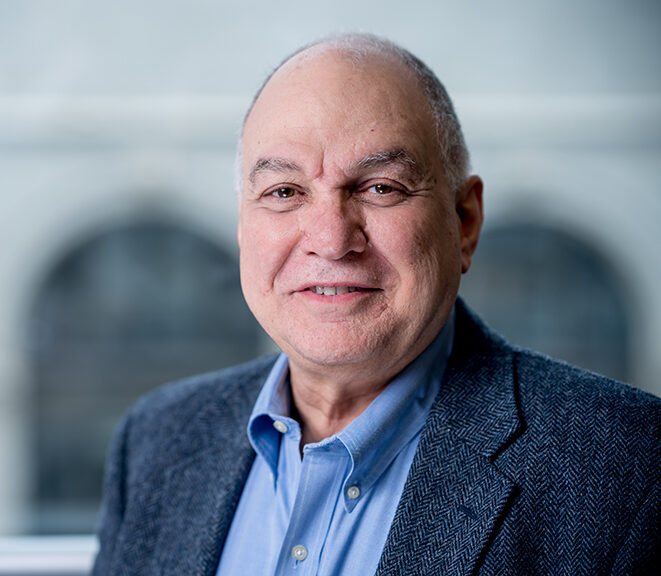
Turning resistance into resilience: Adler professor reimagines therapy for change-resistant clients
What happens when someone doesn’t want to change, even when they’ve sought help? What can therapists do if a client is simply defiant or resistant to therapy itself?

Adler University awards seed grants in support of four faculty-led research projects
“This award highlights the innovation and scholarly contributions of our faculty, whose work advances knowledge for educators and mental health practitioners,” said Cheryl R. Richardson, Ph.D., associate vice president of Faculty Affairs.
Still wondering?
Do you want to know more about Adler University before applying? Learn more about the University, explore programs, view admissions requirements, and review available scholarships.

